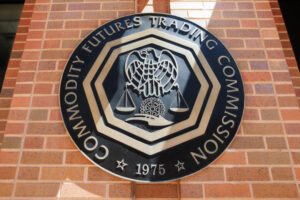CFTC Follows SEC Lead in Striking Down Employment Agreement For Impeding Whistleblowers

Last week (June 17), the Commodity Futures Trading Commission (CFTC) announced that Houston-based commodities merchant Trafigura Trading agreed to pay $55 million to settle charges of violating the Commodity Exchange Act. Specifically, Trafigura traded gasoline based on misappropriated confidential information and manipulated a fuel oil benchmark to benefit its futures and swaps positions.
But what has really gotten the public’s attention is the CFTC also going after Trafigura for using employment and separation agreements that the CFTC considers violate the CFTC’s rules against impeding whistleblowers. In particular, Trafigura required employees to sign employment agreements, and requested that former employees sign separation agreements, with broad non-disclosure provisions that prohibited the sharing of Trafigura’s confidential information with third parties.
The problem for the CFTC was these non-disclosure provisions were silent on dealings with the CFTC:
These non-disclosure provisions did not contain carve-out language expressly permitting communications with law enforcement or regulators such as the CFTC. The provisions caused confusion that resulted in an impediment to voluntary and direct communications with the CFTC about possible violations of the CEA and CFTC regulations in violation of the CEA’s prohibitions against impeding direct communications with the CFTC.
As explained in the CFTC Order that accompanied the agency’s press release, CFTC Regulation 165.19(b) makes it unlawful to “take any action to impede an individual from communicating directly with [CFTC] staff about a possible violation of the Commodity Exchange Act, including by enforcing, or threatening to enforce, a confidentiality agreement . . . .” The CFTC found Trafigura’s non-disclosure agreements violated this regulation by “facially prohibiting an individual from communicating with the Commission.”
The SEC has a similar Whistleblower Protection Rule — SEC Rule 21F-17(a) — and regularly takes enforcement action against companies that rub against it. The CFTC Order cited to several of the SEC’s most recent enforcement actions in this area, including actions against JPMorgan, CBRE, and Monolith Resources. The Trafigura action is the first time the CFTC has gone after a company for violating the rule, a fact CFTC Whistleblower Chief Brian Young took pains to highlight:
This is the first CFTC action charging a company under regulations designed to prevent interference with whistleblower communications. This groundbreaking action demonstrates the CFTC’s commitment to protecting potential whistleblowers and puts the market on notice that the CFTC will not tolerate contractual arrangements that could impede communication by potential witnesses.
What separates this enforcement action from the SEC actions is the nature of the employment agreements at issue. The SEC actions targeted language that directly prevented or dissuaded whistleblowers from going to the SEC by making them waive their right to any whistleblower award, or affirming they had not already reported to the SEC, or otherwise precluding them from voluntarily contacting the SEC. The Trafigura language did not so directly impede whistleblowers from coming forward. There merely was no carve-out that directly permitted it.
While this language was problematic enough for the majority of CFTC commissioners, it was not enough for Commissioners Summer Mersinger and Caroline Pham, who dissented from this part of the Order. Both recognized the critical role of whistleblowers and the importance of maintaining an open line of communication to the SEC. But they felt the majority went too far in punishing a company that took no direct or affirmative action to impede whistleblowers.
Commissioner Mersinger said the “decision to bring this specific charge is inconsistent with the regulation’s text and prior Commission statements regarding the regulation’s intent.” Commissioner Pham was even more strident in her disagreement, saying the agency “overreaches in its zeal to fine millions of dollars for technical issues like nitpicking legal documents in the absence of a firm taking any action” to enforce them. She also questioned looking to the SEC for precedent, arguing “the SEC’s orders or precedents do not provide sufficient notice to the public for CFTC interpretations because we are a different agency with a different statute, regulations, and markets.”
Putting this dissent to the side, companies within the CFTC’s oversight should be mindful of the CFTC’s action here and going forward draft their employment agreements accordingly. That means steering clear of any provisions that might be construed in any way to prevent or deter whistleblowers from reporting to the agency.
All this is very good news for potential CFTC whistleblowers. Not only does it further clear their path to reporting under the CFTC Whistleblower Program, with the potential to share up to 30% of any CFTC recovery. It also provides another powerful demonstration of how seriously the CFTC takes the program and how highly they value whistleblowers.
So if you think you might have information relating to potential commodities violations, the CFTC has made it clear it wants to hear from you. If you want to learn more, please don’t hesitate to contact us to connect with an experienced member of our whistleblower team for a free and confidential consultation.